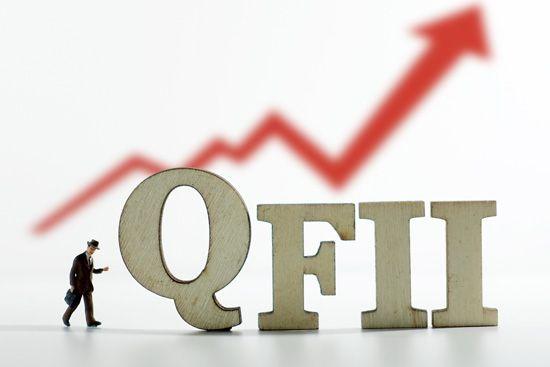
BEIJING, Jan. 16 (Xinhua) -- China's State Administration of Foreign Exchange (SAFE) has announced to double the total quota of the Qualified Foreign Institutional Investors (QFII) program to 300 billion U.S. dollars to better serve overseas investors' demand to expand investment in China's capital market.
This marks a further step of the opening up of China's financial market and paves way for introducing more foreign investment in the domestic capital market, which is expected to promote healthy development of China's capital market in long term.
Further opening-up gesture
In fact, China's previous QFII quota had not been used up. Data from the SAFE showed that compared with the 150 billion U.S. dollars quota, the actual approved QFII investment stood at 101.056 billion U.S. dollars as of December 29, 2018.
Increasing the quota when there is still surplus shows that China is further opening up the capital market, said Guan Tao, former director of Balance of Payments Department under the SAFE and senior researcher of China Finance 40 Forum.
It has also enhanced global institutional investors' expectations and confidence, Guan said.
Amendments to QFII management regulations last year have cut the red tapes to make it easier for the inflow of foreign capital. This year's quota increase will further encourage overseas investors to invest in China's financial market, Guan added.
Meeting growing appetite
China's financial market has been increasingly attractive to foreign investors in recent years as it grew steadily, coupled with further opening up and reform as well as advanced internationalization of the A-share market.
With the opening up of the capital market, the net inflow of foreign capital into China's stock market has increased substantially. It reached 300 billion yuan in 2018 and is expected to increase further in 2019, possibly to 600 billion yuan, Fang Xinghai, Vice Chairman of China Securities Regulatory Commission said in a recent public speech.
MSCI and FTSE Russell had announced the inclusion of Chinese A shares in their relevant indexes. This would attract a large number of foreign institutional investors, such as overseas central banks, sovereign funds, pension funds, family funds, to invest in A shares, said officials with SAFE.
Meanwhile, many overseas institutions expressed their demand for higher QFII quota.
Given the trend of financial opening up, USB is plan to apply for more quota, said Pang Dongming, head of QFII business and director of China securities business of USB (China) Limited.
Stay tuned for actual capital inflow
The newly added 150 billion U.S. dollar quota does not mean immediate capital inflow and we have to wait and see how much actual incremental capital this could generate, according to Xie Yaxuan, chief macro research analyst of China Merchants Securities.
Overseas investors are still expected to increase their investment in China's stock market and bond market, noted Pang Dongming, suggesting that further relaxing restrictions on investment products under QFII and RQFII programs, for example allowing investment in private funds, commodities, and options, could also spur application for additional quota by foreign institutions.
In terms of investment areas, foreign institutional investors are likely to invest in banks, utilities, food and beverage sectors, and they favor government bonds over other types of bonds, according to Xie Yaxuan. (Edited by Su Dan, Niu Huizhe, niuhuizhe@xinhua.org)




 A single purchase
A single purchase









